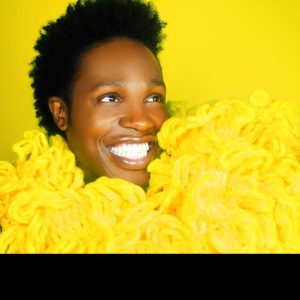 Images of water-deprived foreign countries have become commonplace but what is often overlooked is the water crisis in the U.S. The situation is disproportionately affecting impoverished communities of color and the statistics are alarming. According to environmental organization, Green For All, only 1 percent of the earth’s freshwater is easily accessible. The majority of states in the U.S. expect to face water shortages within the next five years and as many as 20 million people in the U.S. become ill from drinking water each year.
Images of water-deprived foreign countries have become commonplace but what is often overlooked is the water crisis in the U.S. The situation is disproportionately affecting impoverished communities of color and the statistics are alarming. According to environmental organization, Green For All, only 1 percent of the earth’s freshwater is easily accessible. The majority of states in the U.S. expect to face water shortages within the next five years and as many as 20 million people in the U.S. become ill from drinking water each year.
The organization’s CEO, Phaedra Ellis-Lamkins, is taking action by partnering with environmentally conscious manufacturer SIGG USA for the “Keep It Fresh” public education campaign. The project features hip-hop star Wiz Khalifa touring campuses across the U.S. to raise awareness about the water emergency. Rolling out spoke with Ellis-Lamkins on how race and class are part of the issue and what we can do to prevent a disaster. –souleo
Do you believe the issue of urban water pollution is due primarily to race or class issues in the U.S.?
Without question, people of color and low-income communities lack equal access to quality drinking water. Our neighborhoods tend to be the dumping grounds for garbage and toxic waste. Pollutants often seep into water supplies. And if you live in a city facing tough budget choices — as most are — it’s doubtful that your local government is going to make repairing broken pipes a top priority.
Our water system — most of which was built after World War II — is suffering from decades of decay and neglect because each generation passed on their problems to the next, and, now, we’ve reached a crisis point.
There is the perception that there aren’t many visible faces of color on the front lines of these topics. Therefore, why do you think the message of environmentalism is not heavily present in such communities of color?
Race is the No. 1 indicator of where a toxic facility is located. But, historically this has been considered a civil rights issue. On the other hand, “environmentalists” were viewed as being primarily focused on issues like saving endangered species. Race and equity did not appear to be a part of their core agenda.
Green For All wants to bridge this gap by saying to both civil rights organizations and environmental advocacy groups that we share common ground and a common interest: Shaping a cleaner, greener better world for all.
What are the best ways that people can make a change in their everyday lives and actions?
Some easy changes you can make today: Don’t let the water run while you’re brushing your teeth; cut your time in the shower by just a few minutes; make sure your faucet doesn’t drip; and, of course, get a couple of friends to do the same. That’s how we are going to make progress. To me, the answer is obvious: Let’s act now to give all Americans access to quality drinking water for years to come.











